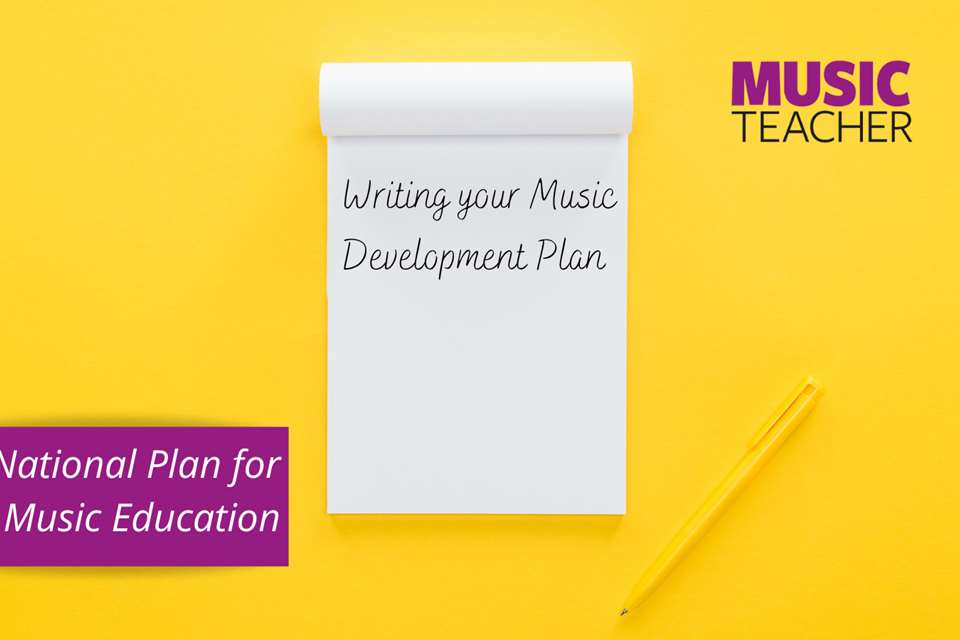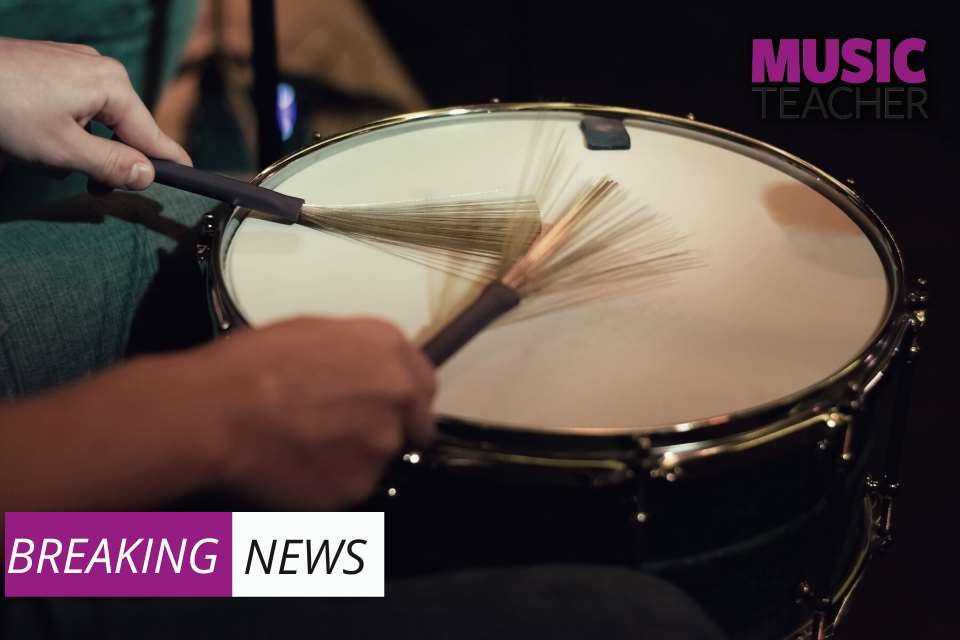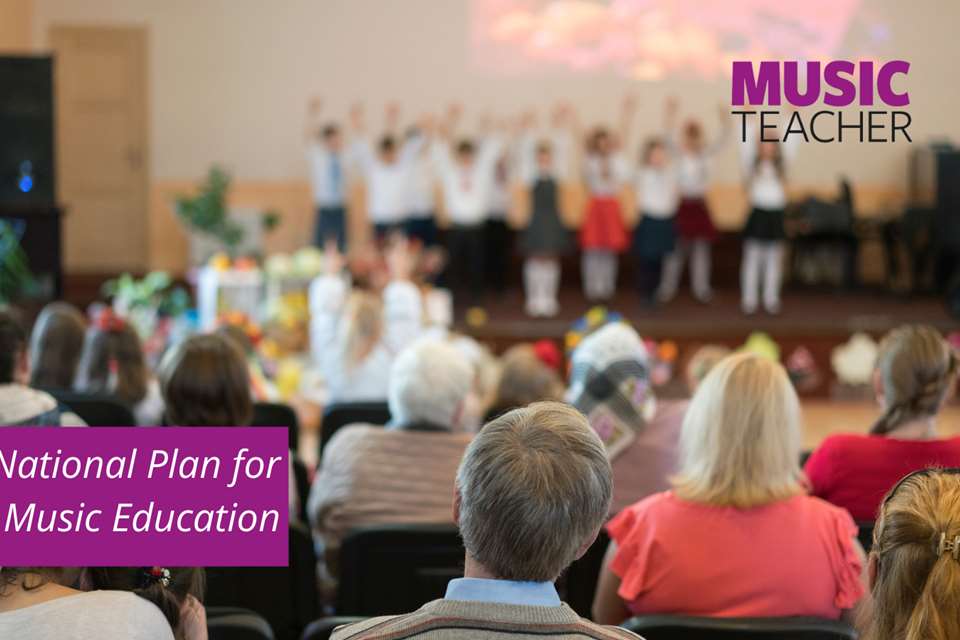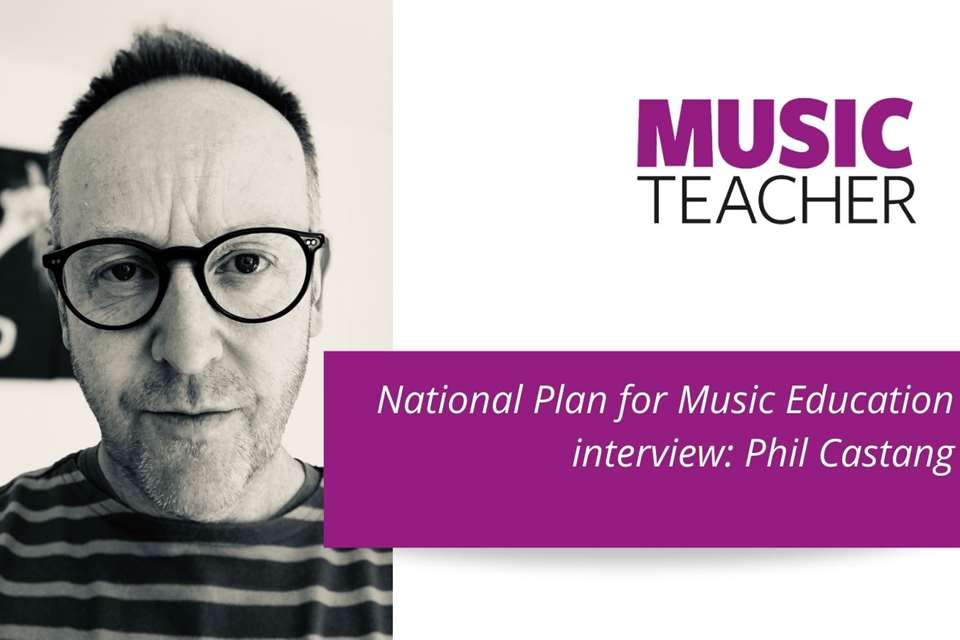What do headteachers think of the National Plan for Music Education?
Harriet Richards
Thursday, September 1, 2022
No two schools are the same, and every headteacher will have unique views about the NPME and its place in their school. Harriet Richards investigates.

Vector Mine/AdobeStock
While much attention has been paid to what people within the music education community think of the National Plan for Music Education (NPME), it is the response from educators not actively engaged in music that arguably carries more weight. More specifically, headteachers, as they are the ones who will make the wider decisions about a school's Music Development Plan. Without a headteacher's support, even the most enthusiastic, proactive primary music lead will struggle to deliver the ambitions of the NPME.
The day after the Plan was released, one primary headteacher, whose blog is followed by nearly 50,000 people, published a widely shared post entitled ‘Another damned expectation’, in which he wrote that he felt he was being ‘set up to fail’. Speaking to me now, Michael Tidd says that the concerns outlined in his blog are not specific to music: ‘It's unhelpful for the government to specify a national curriculum, but then to place greater expectations on schools via other means,’ he says. ‘I'm very much in favour of higher quality music provision, but that requires investment and expertise.’ Tidd's view of the Plan is that neither of these things are guaranteed. He continues: ‘What is needed is proper funding, ideally to train and employ music specialists who can genuinely deliver a high-quality education from a point of knowledge and expertise.’
I'm interested to know whether Tidd thinks there's an alternative to a national plan that would have been better. ‘It's great to have advice and support from expert agencies; I'd happily welcome support with planning, resources, and expertise from those charities and organisations who already work in music education,’ he says. ‘A national plan can be helpful if it incorporates national action, but as far as I could see, the majority of actions fall to schools who are already over-worked and under-resourced.’ One of these actions is to write a Music Development Plan by September 2023. Whether or not his school will write one, Tidd says, will ‘depend on whether it comes to be required by Ofsted or other routes’. As the NPME is non-statutory, this is unlikely to happen in these terms.
Tidd is keen to stress that he is not ‘anti-music’. The current music offer at his school is regularly timetabled music slots for every year group, supported by an external programme and resources, but not taught by ‘anyone who would claim to be musically trained’. He adds: ‘It is very frustrating that one of the things I'd really like to do is employ a music specialist, but they are so rare – presumably because teaching is not a very attractive proposition for such people. If the government invested its efforts into improving that situation, we might be in a better position.’
Music as a driver for improvement
Tidd's views likely ring true for many teachers at the chalkface of a primary school. Lesley Barringer, former headteacher in York and now education consultant, sympathises: ‘I absolutely get that, and I think every other head does. You think: that's great, but how the hell am I going to get that? You immediately see that [the government] wants a lot, and you feel angry.’ She continues: ‘It's not because it's music; it's because we've seen it all before.’
Barringer is the headteacher that Karen Marshall describes in the opening of her MT article: ‘NPME: Building a musical culture in a primary school – the nuts and bolts for success’. A non-musician, Barringer took over a failing state primary school in 2014, merging it with a ‘Good with Outstanding Features’ school, and decided that music would be the key driver for improvement. ‘If you were to put my knowledge of music on a scale from one to 10, it would be a two, and my ability in music is lower than that,’ says Barringer, ‘but my expertise lies in taking schools that have had some difficulty and “turning them around”.’
Keen to implement more than a ‘quick fix’, Barringer needed something that would keep parents on board and would have a longer-term, ‘holistic’ impact. ‘We had a lot of children with behaviour issues, mental health issues, special needs, English as a second language – what are the things that bring them together? Music brings people together, even I can see that. But I wanted a laser sharp focus on excellence, and I couldn't deliver it on my own.’ She continues: ‘I'm only ever interested in the pursuit of excellence. The problem with music is that I didn't know what excellence looks like.’
According to Barringer, this is one of the main barriers to genuinely excellent music provision in primary schools. When the Plan refers to a ‘high-quality curriculum’ or ‘one hour of high-quality music’, she continues, ‘nobody knows’ what that means – ‘just writing it down on a piece of paper doesn't help everyone understand it’. For exactly this reason, the NPME is accompanied by 53 pages of case studies; however, seeing this provision for yourself is always going to be more impactful. ‘What I thought was excellence,’ says Barringer, ‘wasn't. I had to be shown.’
The NPME states that a primary school's music curriculum should be delivered by a music specialist ‘wherever possible’ and a music lead ‘supported with appropriate training’ if not. Before having a specialist, Barringer was ‘never happy’ with the provision delivered using bought-in schemes – ‘we did our best, but I wanted more’. In her case, ‘more’ was achieved by employing a specialist for one day a week and backing them with support from school governors and parents. ‘My job was to find the right person and then support them with the skills they had. I gave her a broad outline of what I wanted, and she came back with what she could do, which grew over time. But as a head, you have to deal with the card that you've been dealt.’
‘I've had my eyes opened’
Echoing Tidd, Barringer emphasises two barriers that headteachers will see when considering the NPME: lack of money and lack of ‘the right’ people. There are ways around both, she says. ‘People think funding music is massive, but it isn't necessarily. The biggest cost is probably the specialist's salary – we were only employing Karen for one day a week, and she was covering every class.’ The first block of money that Barringer gave music was £400. ‘It sounds like a lot considering some subjects had £50, but you need a start-up cost for a subject, and you need a maintenance cost.’ She continues: ‘Money is an easy one to throw up as a problem, but it can be solved by doing it over a longer period of time. I usually ask for a gold, silver, and bronze way of doing things – if we can't afford gold at the moment, then we'll go to bronze and do it over a longer period of time to get gold.’
As in Tidd's experience, not every primary school will be able to have a music specialist. If the ‘gold’ standard for music is employing a specialist, then the bronze might be to offer the music lead training via the music hub or other schools in the trust. ‘You can start building what I call “capacity to improve”,’ says Barringer. ‘It may be slower, it may not be as stunning, it may take five years, but you build capacity to allow things to continue. I'm a creative pragmatist – I ask myself, which bit of the dream might I have to cut initially to get the rest of it?’
As predicted, it wasn't a quick fix, but bringing a music specialist into the school made an ‘amazing’ difference. ‘When I say difference, I don't just mean in music – I mean in the mental health of children who joined the biggest club in the school.’ She repeatedly mentions the cultural capital, adding that the ‘entire ethos’ of music and performance ‘began to permeate’ the school. This relates to what she describes as ‘non-financial social assets that promote social mobility beyond economic means’, such as style of speech, dress, patience, behaviour, attitude, and how to behave in different places with different people. ‘You shouldn't see it as just the music – I've had my eyes opened,’ says Barringer.
‘Support structure’ needed
Now retired, she hadn't read the NPME in full when we spoke (but had read the key takeaways for primary schools). It was all the more interesting, then, when Barringer insisted that there should be ‘beacon schools’ leading the way in musical excellence and CPD provision, and that there should be fewer, but bigger, music hubs. ‘Why does everyone need their own little hub? If you can grow them, it provides more stability for peris,’ she says.
Both suggestions are part of the Plan, much to Barringer's surprise – Lead Schools are to be appointed by spring 2024, and Arts Council England's investment programme will mean that the number of hubs will reduce. Barringer also calls for improved partnerships that act as a ‘support structure’ above headteachers: ‘If we're just looking at headteachers on their own’, says Barringer, ‘that head [who wrote the blog] is absolutely right – the Plan is setting them up to fail. I've felt that way and I think any head in the country will say that, especially in primary school. But there are ways to overcome it, you just need to do it at a higher level. At the moment, it's very fragmented and there's lots of territorial competition instead of a focus on the child.’
Barringer's circumstances were unique. Taking over a failing school brings with it very specific targets, but her voice is surely worth listening to. Gradually, over several years, she found ways to implement much of what we read in the NPME and saw that the impacts were wide-reaching. As fractured hub partnerships begin to be rebuilt, hopefully we will see the extensive expertise that already exists reaching the schools, like Tidd's, that are currently crying out for it.





